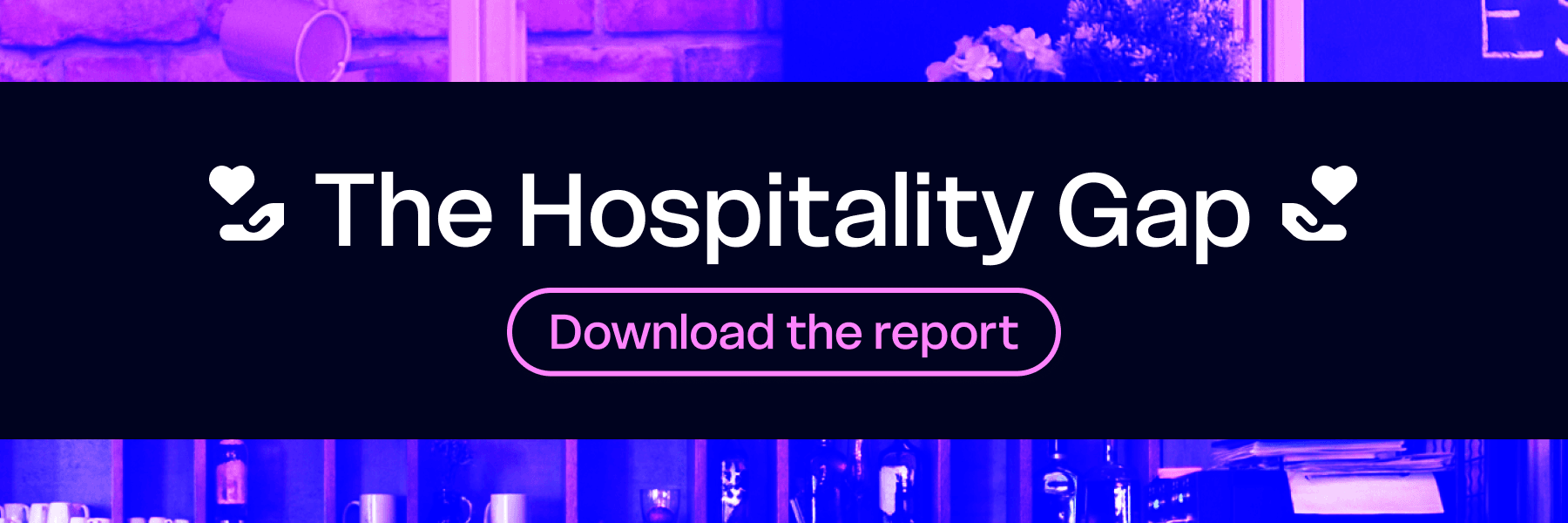Meet the frontline workers behind some of America’s most people-first cultures
3 Key Takeaways From Our Hospitality Frontline Gap Report


Barbara Booras
Head of Customer Community & CX Events at Workvivo
In hospitality, your frontline workers are the face of your company. They liaise with guests and visitors to provide exceptional experiences, problem-solve when things go wrong, and keep operations running smoothly behind the scenes. While their roles can vary from restaurant staff to on-site healthcare providers to event crews, they all have one thing in common: they’re essential to keeping your customers happy and your business thriving.
But despite being vital members of your team, our research shows that frontline workers in hospitality feel overlooked and undervalued. For our recent Frontline Gap Report, we surveyed over 7,500 frontline workers across industries, including over 400 from hospitality, to understand the fracture between frontline and desk-based workers commonly known as the “Frontline Gap”.
We found that frontline hospitality workers are feeling disconnected from wider company culture, causing cracks in communication that could threaten both the employee and customer experience, leading to negative outcomes for your business.
Ready to close the frontline gap in hospitality? Read on for three key takeaways from our findings, and download the full Hospitality Frontline Gap Report to learn more.
1. Hospitality workers feel more connected to their colleagues than their company
More than half (57%) of frontline hospitality workers feel their team has their own workplace culture distinct from the broader company culture. What’s more, almost two-thirds (63%) of frontline hospitality workers say they feel more loyal to their coworkers than their company – the second-highest among industries.
While team camaraderie is great, the creation of microcultures can deepen the gap between frontline and desk workers. Combined with a lack of recognition – some 17% say they’re almost never recognized for their work – this can cause frontline workers to feel their company cares more about their office-based peers than them, which can negatively impact their sense of belonging at work.
But just because hospitality workers are dispersed across locations doesn’t mean they have to be disconnected from their desk-based colleagues. Using an employee experience platform (EXP) brings everyone together in a shared, accessible virtual space, building cross-functional connections that traverse branches and departments.
These shared virtual spaces are also a great place to call out wins and high performance in real time, so managers and colleagues can celebrate achievements and share their appreciation for frontline workers with the wider company.
2. Irrelevant communications are a big problem in hospitality
Frontline workers in hospitality are the most likely to report irrelevant communications, with over half (53%) saying that much of their company’s comms are irrelevant to them. As a result, the majority skip reading them some or all of the time: only a third (37%) of frontline hospitality workers “frequently” read company communications, while one in ten “rarely or never” read them.
This creates a big problem for businesses. In such constantly-changing environments, frontline hospitality workers need to respond to real-time updates to provide the best experiences for guests and customers. From inclement weather conditions impacting certain locations to protocols for upgrading loyal (or disgruntled) patrons, exceptional service relies on clear, up-to-date information. What’s more, ensuring all staff across all locations are working from the same policies and guidelines is essential to creating a consistent, reliable customer experience across your brand.
But if frontline hospitality workers are getting spammed, they risk switching off and missing out on key communications, which could lead to compliance issues or reputational damage. Instead, organizations need to adopt tailored comms strategies that share the right message, in the right medium, at the right time to keep frontline workers engaged and informed.
3. The vast majority of hospitality workers use personal messaging apps for work
Our research shows that a whopping 78% of frontline hospitality workers use personal messaging apps to communicate about work. This is second only to frontline workers in the energy and utilities industry (80%), and puts hospitality notably above the global average of 69%.
Employees using personal, unvetted channels (like WhatsApp or iMessage) for work exposes your business to a range of risks. It introduces privacy and security concerns, makes compliance more difficult, creates information silos, and fosters a lack of alignment and transparency across teams. It can also lead to problems with scheduling and even HR if workers aren’t communicating in the right channels.
If frontline workers aren’t using the provided tools, it’s worth asking why not. In most cases, it’s because they don’t meet frontline workers’ specific requirements: some 69% of frontline hospitality workers feel frustrated by the communication technology their company provides, with almost half (43%) saying they feel designed for desk workers, not them.
To address this, organizations need to understand what frontline workers really want from their communication tools, like easy-to-use UX, real-time connections with colleagues, and mobile-first platforms they can access from anywhere.
Keep frontline hospitality workers connected and engaged
Customer experience is everything in hospitality – and positive customer experiences start with positive employee experiences. When frontline workers feel engaged, connected, and valued, they’re better able to meet guests’ needs, respond to challenges, and represent your brand values in every interaction.
To close the frontline gap in hospitality, businesses need to proactively support these employees with clear communication, meaningful recognition, and the right tools. Want to learn more? Download the full Hospitality Frontline Gap Report now to get more insights and actionable tips.
